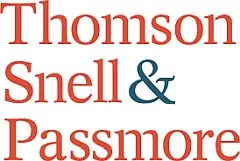"I've heard about hidden fees like leasehold and estate fees – what are these and how can I find out the potential costs?"
There are two main types of property in England & Wales, Freehold and Leasehold. Freehold means that you own the building and land on which the building is situated. Leasehold means you do not own the land only the part of the building which is let to you under the lease.
With Leasehold you will likely pay a service charge towards the cost of maintaining the structure and communal areas of the building and grounds. When you purchase a leasehold property your lawyer should make enquiries to confirm the amount of service charge for both annual costs (e.g. insurance) and for major expenses (e.g. roof repairs). The law states that a service charge must be 'reasonable' and if the cost is over £250.00 per property, each leaseholder must be consulted.
With Freehold you will be responsible for maintaining your property but you may pay an estate charge for maintaining communal areas in the estate e.g. private roads and green areas such as parks. Again your lawyer should make enquiries to confirm what charges are payable and if any additional charges are likely to be payable.
The content of this article is intended to provide a general guide to the subject matter. Specialist advice should be sought about your specific circumstances.


